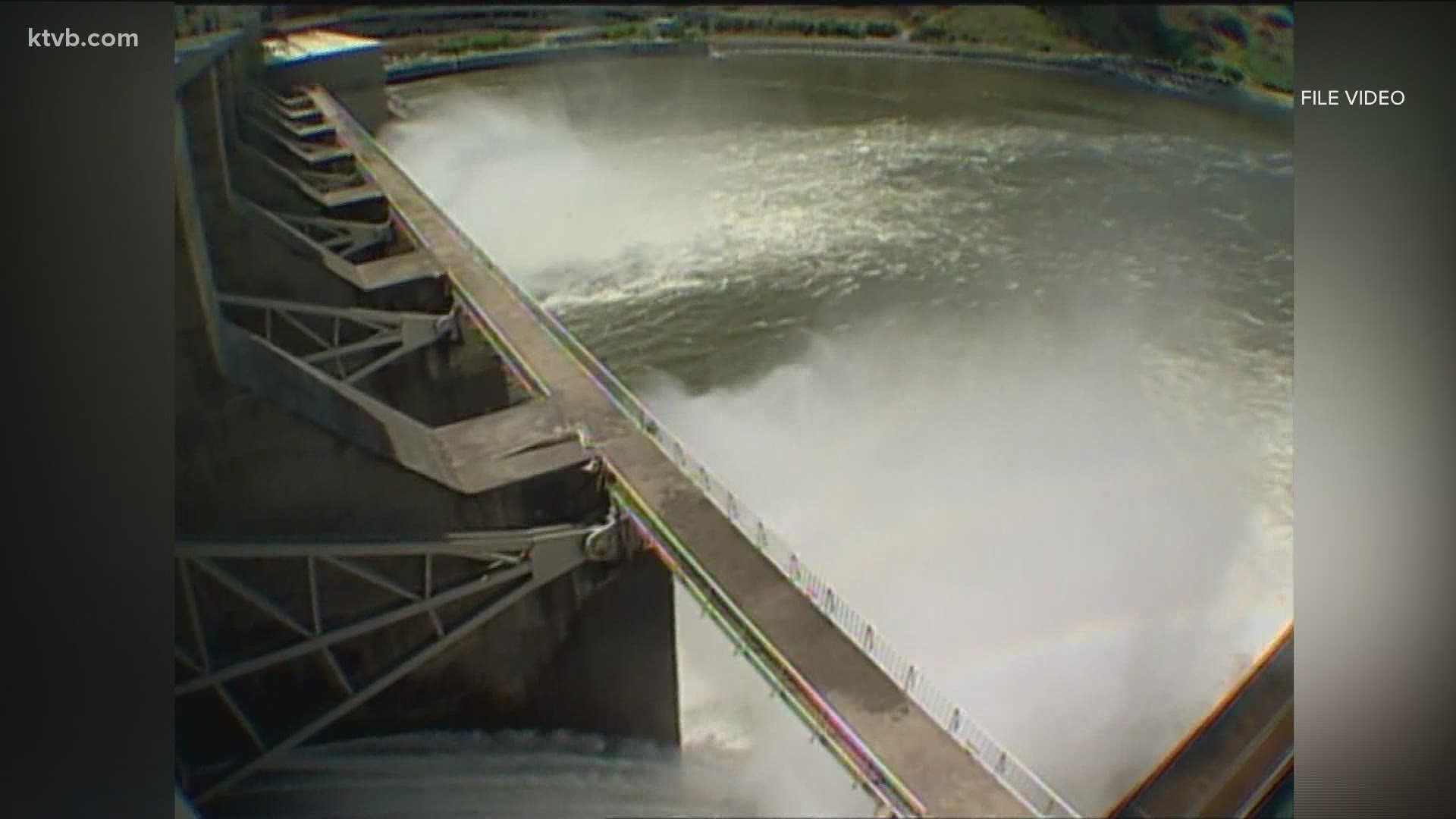Idaho Congressman Mike Simpson has proposed removing four hydroelectric dams in the Pacific Northwest as part of a sweeping new plan to address the decades-long problem of how to save salmon populations without upending a system that provides power to millions of people.
The $33.5 billion proposal would breach four dams on the Lower Snake River by the end of the next decade, freeing up the waterway for long-ranging salmon that are also a key food source for orcas. The plan, which was unveiled late Saturday, would pay for finding ways to replace the dams' key roles in energy, agriculture and transportation.
Simpson has spent much of his time in Washington, D.C. working on protections for the state's lands and wildlife. This new proposal may be his biggest undertaking yet.
He says not removing the dams would mean condemning Idaho salmon into extinction.
Simpson calls the plan "The Northwest in Transition." The most immediate action includes removing the four dams on the Lower Snake River:
- Lower Granite Dam
- Little Goose Dam
- Lower Monumental Dam
- Ice Harbor Dam
The proposed removal of these dams comes with its fair share of both approval and pushback from community members, local organizations, and commercial businesses.
Removing the dams could create economic and logistical problems for farmers and ranchers along the Lower Snake River who rely on the dams for transportation of crops, irrigation and electricity.
On the other hand, there are many conservation organizations in full support of Simpson's proposal, like Idaho Rivers United.
"The science has shown that is the most essential criterion for recovering salmon and steelhead back to Idaho and the Snake River and salmon basins," said Nic Nelson, Executive Director for Idaho Rivers United.
Some of Simpson's proposal allocates $16 billion to replace the dams with other clean energy sources that are friendlier to migrating salmon.
Simpson proposes renewable to battery energy, pump storage, and hydrogen storage as possible alternatives, among others.
The plan also allocates $4.6 billion to improve water quality and $1.85 billion to help industries along the river that would be impacted by the removal of the dams.
“Instead of giving a prescriptive measure, it allows each individual stakeholder and sector to provide their own pathway moving forward," Nelson said.
That $1.85 billion would go to businesses like the Port of Lewiston, the furthest inland seaport on the West Coast.
David Doeringsfeld, general manager at the Port of Lewiston, claims there is not enough evidence to support the dams are killing off salmon.
"Congressman Simpson's proposal to end salmon litigation by breaching the four Lower Snake River Dams does little to restore abundant fish runs," he said in a statement. "His proposal throws billions of tax-payer dollars at unproven ideas and provides no explanation on how his ideas would be implemented... The Port is in discussion with the Congressman on his proposal."
"What do we want the Northwest to look like in 30, 40, 50 years?" Simpson said. "We can seize this chance to shape our future, if we resist the urge to make snap judgments and instead work together to solve these issues once and for all. We owe it to future generations to try."
The conversation comes at a key time for the fish. Eight dams along the Snake and Columbia rivers hinder their migration to the Pacific and half of the young salmon die on the trip. Idaho salmon runs have dwindled from the millions of wild fish to only a few thousand some years.
Simpson's plan could be a turning point on the issue mired in decades of court battles and ballooning costs, but there's still plenty of disagreement.
"These dams are the beating heart of Eastern Washington," said Republican Rep. Cathy McMorris Rodgers of Spokane in a statement. "Spending $33 billion to breach them — with no guarantee that doing so will restore salmon populations — is a drastic, fiscally irresponsible leap to take."
Simpson, meanwhile, said he's hoping the plan starts a conversation that also includes tourism and a major role for Native American tribes.

